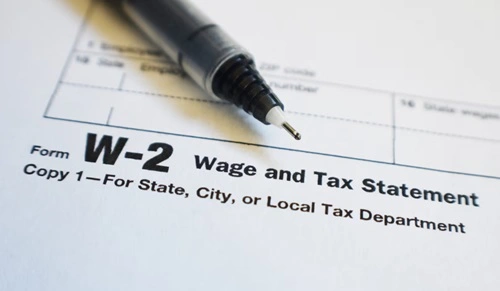Yes, it is generally illegal to classify a nanny as an independent contractor and issue them a 1099 instead of treating them as a household employee and issuing a W-2. Under U.S. tax laws and Department of Labor guidelines, nannies who work in a private household are considered employees, not independent contractors. Misclassifying a nanny can lead to legal and financial consequences for the employer.
Legal Classification of Nannies
1. Employee vs. Independent Contractor
The Internal Revenue Service (IRS) has clear rules for determining whether a worker is an employee or an independent contractor. The key factor is the degree of control the employer has over the worker. Nannies, by definition, meet the criteria for employees because:
- The employer controls where, when, and how the nanny performs their job.
- Nannies work regularly and exclusively for one family in most cases.
- The family provides the tools and materials needed for the job, such as food, cleaning supplies, and sometimes transportation.
As employees, nannies should be issued a W-2 form at the end of the year, not a 1099 form.
2. Misclassification Consequences
Misclassifying a nanny as an independent contractor can result in penalties for the employer, including:
- Back payment of Social Security and Medicare taxes.
- Unpaid federal and state unemployment taxes.
- Interest and fines for failing to withhold income taxes.
- Legal action from the nanny if they are denied employee benefits or protections.
Federal Employment Laws for Nannies
1. Fair Labor Standards Act (FLSA)
The FLSA governs household employees, including nannies. Under this law:
- Nannies must be paid at least the federal minimum wage (or higher if the state minimum wage is higher).
- Overtime pay (1.5 times the regular hourly rate) must be provided for hours worked over 40 in a week.
2. Tax Withholding Requirements
Employers of household workers are required to:
- Withhold and pay Social Security and Medicare taxes.
- Pay federal unemployment tax (FUTA).
- Follow state tax withholding and unemployment insurance requirements.
Employers must also issue a W-2 form by January 31 each year, showing the nanny’s earnings and withholdings.
Why You Should Not Issue a 1099
Issuing a 1099 implies that the nanny is an independent contractor responsible for their own taxes. However, the IRS and Department of Labor clearly define nannies as employees, making a 1099 inappropriate. Independent contractors typically:
- Operate their own business or service.
- Work for multiple clients.
- Set their own schedules and provide their own tools or materials.
Nannies do not meet these criteria because they work under the direct control and supervision of the household that employs them.
Exceptions and Special Circumstances
While most nannies are employees, there are rare situations where issuing a 1099 may be appropriate:
- Temporary Agency Workers: If the nanny works for a placement agency that controls their schedule and pay, the agency—not the family—handles employment taxes.
- Occasional Babysitters: Casual babysitters who work sporadically or for multiple families may not need to be classified as employees.
Recent Updates and Legal Trends
As of 2024, the IRS and Department of Labor are increasing efforts to enforce worker classification rules, particularly in the gig economy and domestic employment. Employers who misclassify workers, including nannies, are facing stricter audits and higher penalties.
Additionally, advocacy groups are pushing for greater awareness of household employer responsibilities to ensure nannies receive fair treatment and benefits under the law.
FAQs About Classifying Nannies
Q1. Can I 1099 my nanny if they agree to it?
Ans: No, a nanny’s classification is determined by law, not by agreement. Even if the nanny consents, issuing a 1099 is illegal if they meet the criteria for an employee.
Q2. What happens if I misclassify my nanny?
Ans: You could face IRS audits, back taxes, penalties, and legal claims from the nanny for unpaid benefits and protections.
Q3. Do I have to pay taxes for my nanny if they work part-time?
Ans: Yes, even part-time nannies are considered employees and require tax withholdings and a W-2 form if they earn $2,600 or more in 2024.
Q4. What if my nanny is an undocumented worker?
Ans: Even undocumented workers must be classified as employees, and employers are required to follow tax and labor laws regardless of immigration status.
Q5. Are there tax benefits to properly classifying my nanny?
Ans: Yes, employers may qualify for tax breaks such as the Child and Dependent Care Tax Credit or the ability to pay a portion of their nanny’s wages through a Dependent Care Flexible Spending Account (FSA).


